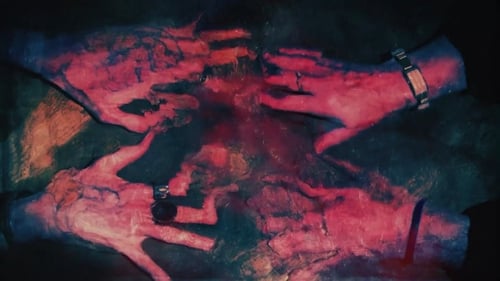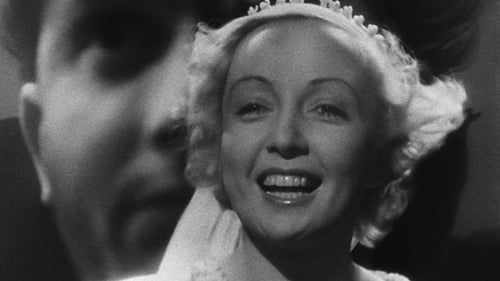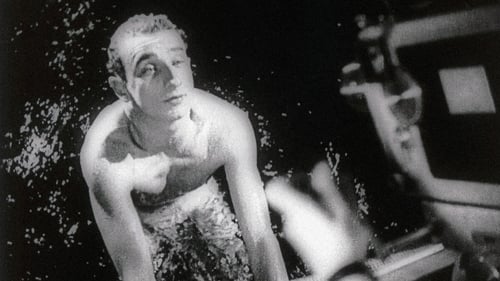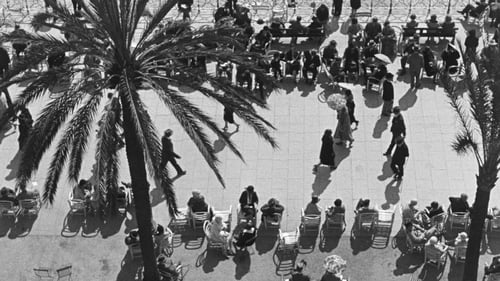
Jean Vigo
Nascimento : 1905-04-26,
Morte : 1934-10-05
História
Jean Vigo was a French film director who helped establish poetic realism in film in the 1930s; he was a posthumous influence on the French New Wave of the late 1950s and early 1960s.
Vigo was born to Emily Clero and the prominent Catalan militant anarchist Eugeni Bonaventura de Vigo i Sallés (who adopted the name Miguel Almereyda—an anagram of "y'a la merde", which translates as "there's shit"). Much of Jean's early life was spent on the run with his parents. His father was imprisoned and murdered in Fresnes Prison on 13 August 1917. The young Vigo was subsequently sent to boarding school under an assumed name, Jean Sales, to conceal his identity.
Vigo is noted for two films that affected the future development of both French and world cinema: Zero for Conduct (1933) and L'Atalante (1934). Zero for Conduct was approvingly described by critic David Thomson as "forty-four minutes of sustained, if roughly shot anarchic crescendo." L'Atalante was Vigo's only full-length feature. The simple story of a newly married couple splitting and reuniting is notable for the way it effortlessly merges rough, naturalistic filmmaking with shimmering, dreamlike sequences and effects. Thomson described the result as "not so much a masterpiece as a definition of cinema, and thus a film that stands resolutely apart from the great body of films."
His career began with two other films: À propos de Nice ("about Nice," 1930), a subversive silent film inspired by Soviet newsreels which considered social inequity in the resort town of Nice; and Jean Taris, Swimming Champion (1931), a study of swimmer Jean Taris. None of his four films were financial successes; at one point, with his and his wife's health suffering, Vigo was forced to sell his camera.
Vigo was married and had a daughter, Luce Vigo (a film critic) in 1931.
Zero for Conduct was banned by the French government until after the war, and L'Atalante was mutilated by its distributor. By this point, Vigo was too ill to strenuously fight the matter. Both films have outlived their detractors; L'Atalante was chosen as the 10th-greatest film of all time in Sight & Sound's 1962 poll, and as the 6th-best in its 1992 poll. In the late 1980s a 1934 copy of L'Atalante was found in the British National Film and Television Archive, and became a key element in the restoration of the film to its original version.
Writing on Vigo's career in The New York Times, film critic Andrew Johnston stated: "The ranks of the great film directors are short on Keatses and Shelleys, young artists cut off in their prime, leaving behind a handful of great works that suggest what might have been. But one who qualifies is Jean Vigo, the French director who died of tuberculosis at age 29 in 1934.”
2011 Parajanov-Vartanov Institute Award posthumously honored Jean Vigo for Zero for Conduct and was presented to his daughter Luce Vigo.

Director
While reconstruction of L’Atalante as a major feature has captured critical attention and debate, we also know that in 1933 even contemporary audiences, critics and politicians grasped the dangerous messages of Vigo’s mini-epic of school rebellion and took their scissors to it while keeping it from the public for more than a decade. Still, alternative versions reached other countries – including a different, early version in Italy – and pieces remain. Together with the rushes, outtakes and on location footage of Vigo during the shoot, Young Devils in School helps us to better understand Vigo’s original vision.

Screenplay
An adaptation of an unrealized script by Jean Vigo (Les lignes de la main), starring his late daughter, the critic, programmer, and actress Luce Vigo

Himself in pictures

Screenplay
Quando se casa com Jean, Juliette vai morar no barco do marido, onde o casal está acompanhado apenas de mais dois tripulantes. Pouco tempo depois, entediada com a vida a bordo, a mulher desembarca em Paris para ver a vida noturna. Irritado com isso, Jean zarpa, abandonando Juliette, mas, angustiado pela culpa e pela saudade, cai em depressão, e um dos tripulantes volta à cidade para tentar achar Juliette.

Director
Quando se casa com Jean, Juliette vai morar no barco do marido, onde o casal está acompanhado apenas de mais dois tripulantes. Pouco tempo depois, entediada com a vida a bordo, a mulher desembarca em Paris para ver a vida noturna. Irritado com isso, Jean zarpa, abandonando Juliette, mas, angustiado pela culpa e pela saudade, cai em depressão, e um dos tripulantes volta à cidade para tentar achar Juliette.

Editor
Volta aos tempos de escola num colégio do interior, as bagunças dentro do dormitório, a punição severa, a recreação, o estudo indisciplinado e os confrontos com a administração. Um noite os garotos internos decidem se libertar da autoridade dos adultos e uma revolta arrebenta. Esta é a obra mais autobiográfica de Jean Vigo.

Producer
Volta aos tempos de escola num colégio do interior, as bagunças dentro do dormitório, a punição severa, a recreação, o estudo indisciplinado e os confrontos com a administração. Um noite os garotos internos decidem se libertar da autoridade dos adultos e uma revolta arrebenta. Esta é a obra mais autobiográfica de Jean Vigo.

Writer
Volta aos tempos de escola num colégio do interior, as bagunças dentro do dormitório, a punição severa, a recreação, o estudo indisciplinado e os confrontos com a administração. Um noite os garotos internos decidem se libertar da autoridade dos adultos e uma revolta arrebenta. Esta é a obra mais autobiográfica de Jean Vigo.

Director
Volta aos tempos de escola num colégio do interior, as bagunças dentro do dormitório, a punição severa, a recreação, o estudo indisciplinado e os confrontos com a administração. Um noite os garotos internos decidem se libertar da autoridade dos adultos e uma revolta arrebenta. Esta é a obra mais autobiográfica de Jean Vigo.

Editor
Short documentary directed by Jean Vigo about the French swimmer Jean Taris. The film is notable for the many innovative techniques that Vigo uses, including close ups and freeze frames of the swimmer's body.

Writer
Short documentary directed by Jean Vigo about the French swimmer Jean Taris. The film is notable for the many innovative techniques that Vigo uses, including close ups and freeze frames of the swimmer's body.

Director
Short documentary directed by Jean Vigo about the French swimmer Jean Taris. The film is notable for the many innovative techniques that Vigo uses, including close ups and freeze frames of the swimmer's body.

Producer
Um satírico e envolvente retrato da cidade turística de Nice, na Côte d’Azur, na época vendida como a cidade dos prazeres.

Editor
Um satírico e envolvente retrato da cidade turística de Nice, na Côte d’Azur, na época vendida como a cidade dos prazeres.

Writer
Um satírico e envolvente retrato da cidade turística de Nice, na Côte d’Azur, na época vendida como a cidade dos prazeres.

Director
Um satírico e envolvente retrato da cidade turística de Nice, na Côte d’Azur, na época vendida como a cidade dos prazeres.






